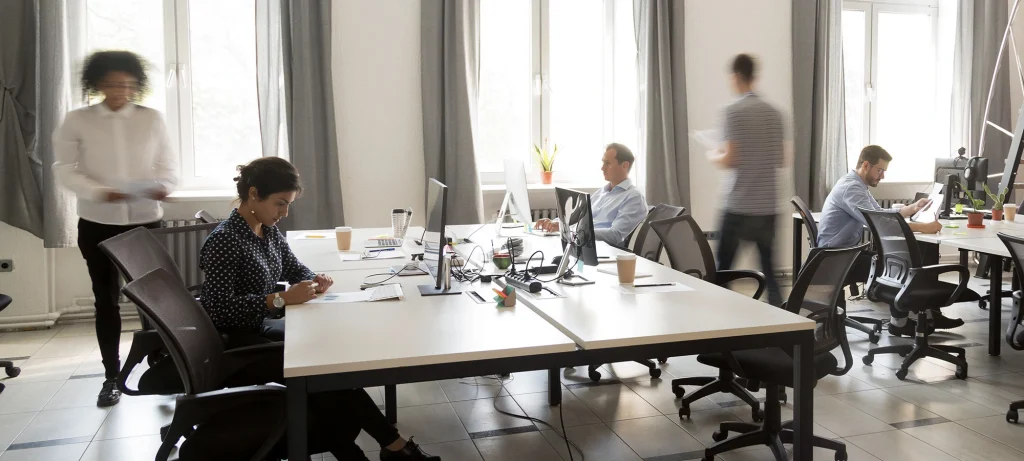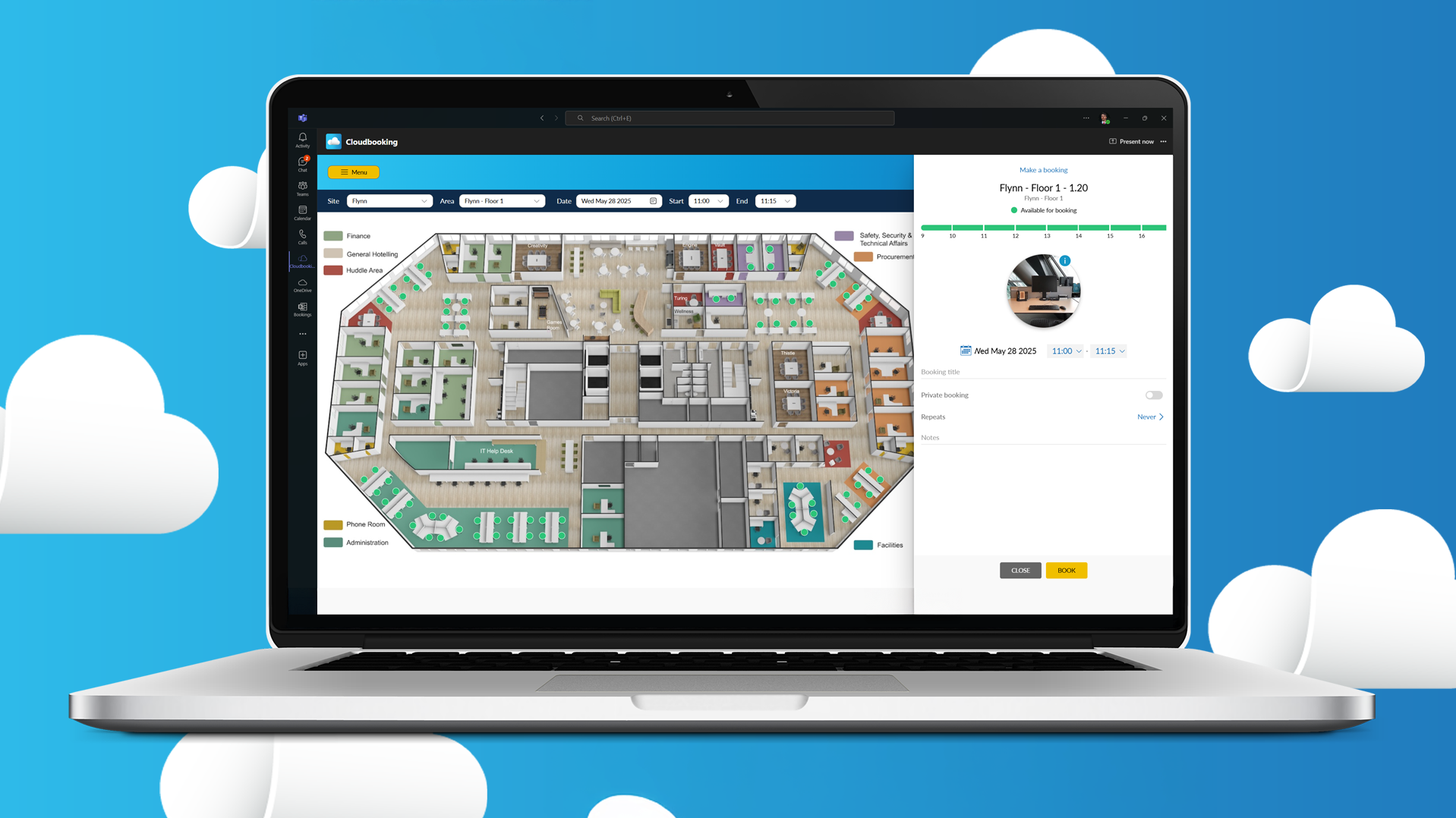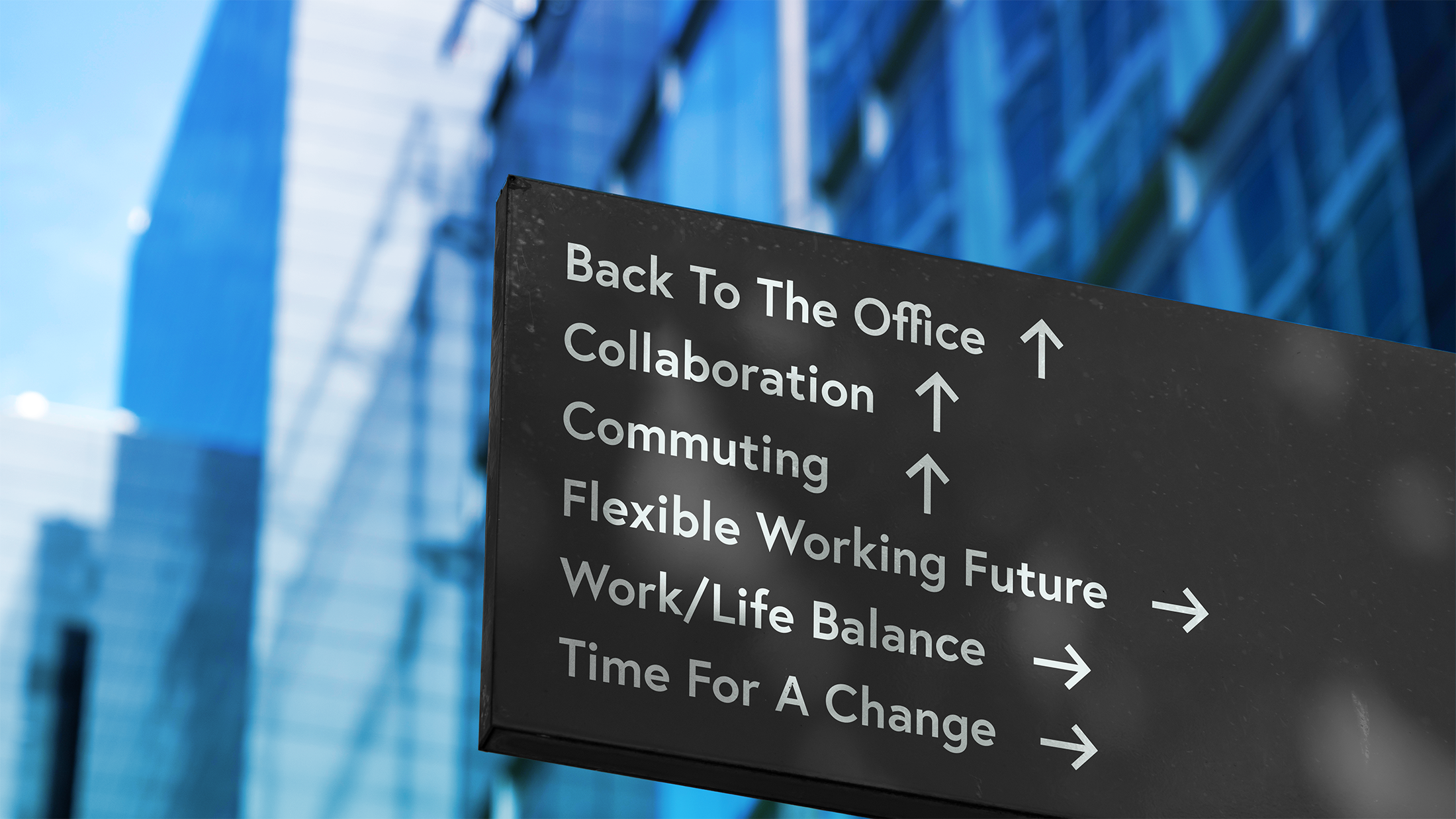
As employers and employees enter 2022, it is impossible not to look ahead to the coming 12 months as a key period for employees and employers alike. Once referred to as “post-pandemic”, the latter half of 2021 saw that term become outdated as the threat of restrictions and the rising COVID-19 infection rates plunged much of the world back into uncertainty. The question remains — what does the future of work look like, and how can we expect things to change in 2022? Here at Cloudbooking, we attempt to answer these questions.
Ways of working and business models have undergone seismic change in the last 24 months. What were once unprecedented working conditions have started to feel typical. However, that doesn’t mean that we expect things to stay the same. Flexible production methods will meet customer needs, employees will reclaim their importance while being supported by technology, and there will be a reconnect between organizations and their workforces. 2021 saw the great resignation, while 2022 promises to be the year of the great reinvention.
Employees are everything
2021 saw the much-publicized “Great Resignation,” which centered around employees reevaluating their careers and being unwilling to return to poor working conditions with little care shown for employee wellbeing. Employee wellbeing looks to be a major buzzword in 2022, with businesses and organizations realizing that greater connection and support for employees is now of the utmost importance in retaining a contented workforce.
Organizations that offer flexibility, freedom, healthcare, and a greater employee wellbeing focus have been proven to have better employee retention, satisfaction, and productivity. This focus on employee wellbeing in 2022 appears to be one of the major positives to come out of the pandemic. Although feeling supported and connected to an organization shouldn’t characterize 2022, it will be a welcomed change for many employees and the most effective way for businesses to deal with the talent shortage and competition. This is of course why many government organisations are switching to a flexible working model.
Employee personalization
Organizations and businesses are realizing that each employee is different and that instead of treating employees as one workforce, they should be treated as individuals. Perhaps present-day employers can learn from the past when smaller family-style businesses recognized their employees as people with their own characters and skillsets and knew how best to work with them to everyone’s satisfaction. Whether you have an experienced employee who prefers to work from home or an apprentice who requires more direction, an individual approach is likely to be far more effective for employee satisfaction.
We predict that 2022 is the year that employee experience will be looked at individually using the following methods:
- In-depth knowledge of employees will be built rather than a generalization of demographics and personas
- Increased flexibility in processes and policies
- Increased personalization at each stage of the employee development
Discover The Future of Working from Home: Hybrid Office or Remote Work?
Focus on employee skills
According to Gartner, “To build the workforce you’ll need post-pandemic, focus less on roles — which group unrelated skills — than on the skills needed to drive the organization’s competitive advantage and the workflows that fuel this advantage.”
Employee roles are important; however, they relate to how an individual fits within the hierarchy of an organizational structure. This is different from an employee’s skills, which are far more important in overcoming business challenges. Over the last few years, there has been an idea that we can place less importance on roles within business but instead focus on the skills that an employee can offer. We predict 2022 to be key to this movement.
Not only can focusing on skills help a business solve problems and drive innovation, but it also offers employees the opportunity to develop their skills rather than the abilities needed to carry out a specific role. This allows movement and flexibility within roles and should also increase employee motivation and involvement.
A new power dynamic
When it comes to designing the workplace of the future, no one has the definitive answer. Managers and leaders must embrace the fact they don’t necessarily know better than their employees when adapting to the new processes involved in hybrid and remote work.
Employees will have more power than ever before in 2022. This means that the new power dynamic between managers and employees will likely become more of a partnership that focuses on empathy, shared goals, and responsibilities. The future of work will see a new take on management and challenging new relationships.
Flexible ways of working are here to stay
As previously mentioned, flexibility is still a major talking point in the world of work. Since the work from home order was issued in 2020, many people have become used to the flexibility it offers. The lack of a commute, the flexibility to manage your own hours, and the ability to be there for family and kids has meant that many employees simply refuse to go back to the traditional nine-to-five days at the office. The future of work looks flexible, so let’s take a look at the main ways the office-based employee is under threat.
Remote work
Remote work refers to a way of working that offers total flexibility and freedom to the employee. Remote workers are normally not required to attend office-based sessions or team-building events in person. This means that teams in remote companies are more global than ever.
Gartner estimated that remote workers would represent 32% of the global workforce by the end of 2021. When looking at the future of work, we can only expect to see this figure rise as more organizations offer flexibility. Remote working or other variations on the concept look set to be the future of work and a development that will continue in 2022.
Hybrid working
Often described as the best of both worlds, hybrid working gives employees more freedom. Usually, the entire team will be broken into three different groups, those who work from the office, those who work remotely, and those who have the option to work remotely or from the designated office space. This is normally based on personal preference, objectives, and circumstances.
Although the traditional office experience doesn’t look as though it will become a thing of the past in 2022, it is certainly becoming less common, thanks to an increase in workers’ preference for hybrid workplaces, with a fully on-site workplace falling from 62% to 37% and hybrid working rising from 30% to 52%.
Hybrid working in 2022 looks set to increase in popularity. However, the model is not perfect, and there will be continual re-optimizing and monitoring. Technology will continue to change how successful hybrid working will be. Desk booking systems, meeting room booking software and visitor management systems, like the services we provide at Cloudbooking will be essential to the future of work, and in particular, hybrid working.
A changing relationship with our offices
For too long, offices have been a bleak place where employees check emails, congregate, procrastinate, gossip, and microwave meal deals, but this should be about to change as many companies look set to adopt hybrid and remote working.
Human resource and real estate professionals will become more important than ever in hybrid working. Organizations will place much greater responsibility on these individuals as they help manage virtual teams and drive growth.
The office has always been seen as essential for company culture. However, through technology and effective leadership, hybrid teams can also boost excellent workplace culture and an important sense of togetherness, even for virtual teams. This means that the office can be used functionally and efficiently as a place for specific tasks or meetings that benefit from the unique aspects of an office.
Look back to 10 years ago, and the future of work was littered with office perks and location-based benefits. Big tech companies boasted sleep pods, video gaming areas, and incredible catering. These sorts of perks are used to entice the top talent from around the world. Although the benefits of these perks are not totally lost, they certainly carry less importance for today’s workforce.
Technology will define how we work
Year on year, technology makes enormous advancements, and 2022 looks to be no different. However, perhaps technology will play an even greater role in the future of work than normal as so many organizations adopt new ways of working, find ways to augment humans, and respond to changing consumer demand.
AI-augmented workforce
With the World Economic Forum predicting that AI and automation will lead to the creation of 97 million new jobs by 2025, it appears that existing jobs will be required to augment their abilities with AI technology. The future of work is pretty clear when it comes to AI augmentation, and it is believed that in 2022 we will begin to see more repetitive daily tasks carried out by this advanced AI technology. This will leave workers with more time to focus on the creative, skilled elements of their role that require a human touch.
Workplace management systems
Workplace management software like Cloudbooking has helped redefine the office and the future of work. Throughout the COVID-19 pandemic, COVID safe solutions have enabled organizations and workforces to get back to work safely and effectively. The Cloudbooking workplace management solutions are an essential part of the smart office and helped create a smooth transition for many businesses changing to hybrid working. 2022 looks to be another big year for Cloudbooking and the hi-tech workplace.
High security is also a big concern for many industries and visitor management systems help to protect office sites and employees’ well being. CLoudbooking offers tailored solutions for certain industries such as aerospace and defence solutions.
Productivity applications and tools
Employers are always looking to increase productivity, and 2022 looks to be no different. As hybrid and remote employees take more responsibility for their productivity and efficiency, we have seen a rise in the popularity of productivity apps and tools. These tools can range from communication and workplace management apps to scheduling tools. Although the market is already fairly saturated with excellent productivity-boosting tools, there is always room for more over the next 12 months.
Monitoring and analytics
It has been over 70 years since the term “Big Brother” was first used. The term is synonymous with surveillance and monitoring and could potentially be used to describe the future of work in 2022. Controversially many companies have started investing in technology designed to monitor and track the behavior of their employees.
The thought behind this form of technology is to improve efficiency and drive productivity. Although many see this technology as intrusive or overbearing, it can be hugely beneficial to managers of remote or hybrid teams, where the employee visibility is minimal. Generally, the idea is to use these forms of monitoring technologies to gather analytics on the entire workforce and its behavior rather than the activity of individuals. Whether its implementation is beneficial or not, it seems as though it is the future of work in 2022.
Sustainability
Environmental, social, and governance (ESG) and sustainability have been a hot topic for years now, but recently they have become vital to a successful organization, especially government organisations focused on meeting net-zero targets. The future of work is sustainable, and not making this a priority will have major long-term costs.
We have reached a point where customers, employees, and investors refuse to work for or with a business that isn’t building towards a sustainable future, and this sentiment is only going to get stronger in 2022 as the world starts to move the focus away from COVID-19.
Focussing on the future
The last two years have thrust the frailties and problems with the way we work and the relationship between employees and their jobs into the spotlight. The task at hand is clear — work together to create a positive change in the world of work.
The focus should never solely be to develop a more productive and efficient workplace but also to look after the people who make it all possible. While the world is still licking its wounds and attempting to recover from a major crisis, there are positive signs on the horizon for anyone disillusioned with their current career path.
Seize this opportunity to focus on the future of your workplace with Cloudbooking’s workspace technology. Contact us now for a no-obligation product demo.


